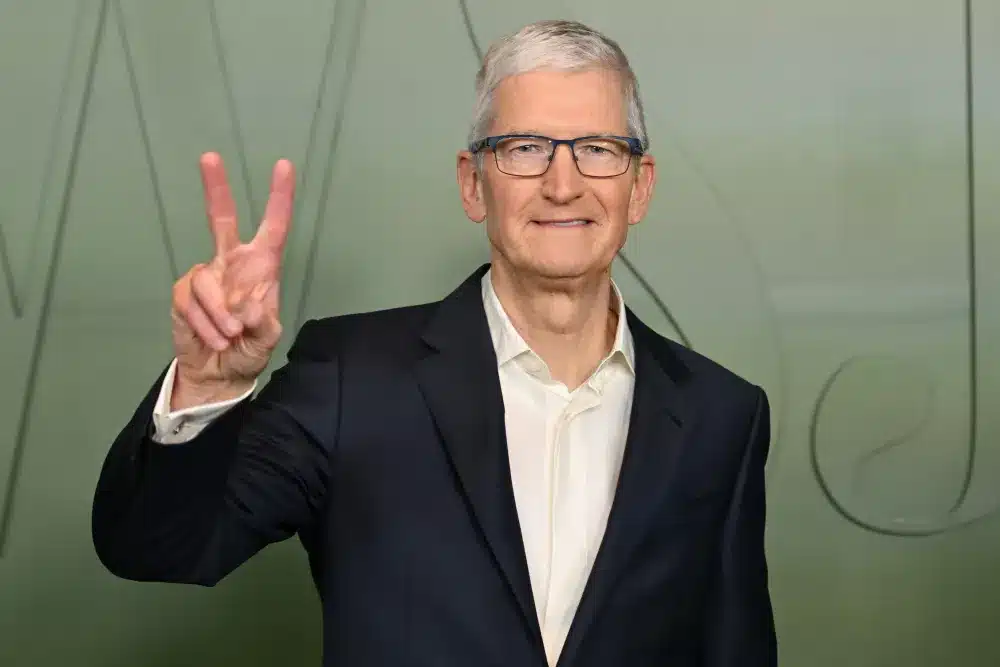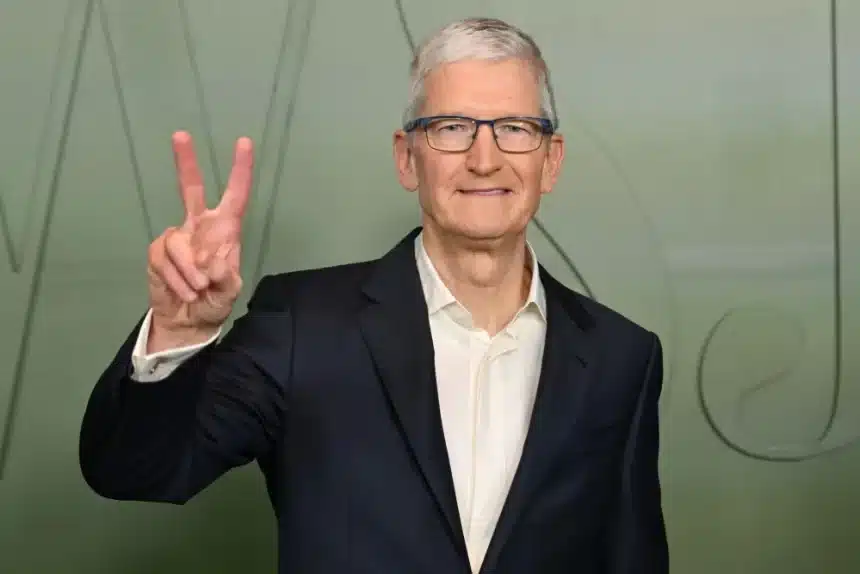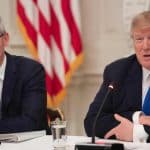Apple CEO Tim Cook met with former President Donald Trump on February 20, 2025, at the White House. While details of their conversation remain undisclosed, experts believe the discussion likely revolved around U.S. trade policies, import tariffs, and Apple’s supply chain challenges.
Tariffs and Their Potential Impact on Apple
One of the key concerns surrounding the meeting is the possibility of increased tariffs on electronic goods manufactured in China. The U.S. government has previously proposed higher import taxes, which could significantly impact Apple’s product pricing. Reports suggest that if the tariffs are implemented, iPhone prices could rise by as much as 9%.

Apple sources many of its components, including chips, screens, and cameras, from Chinese manufacturers. A shift in trade policies could force Apple to reconsider its supply chain strategy and explore alternative production locations, such as the United States.
U.S. Manufacturing and Apple’s Supply Chain Shift
Another likely topic of discussion was the expansion of Apple’s manufacturing presence in the U.S. While Apple assembles some products, like the Mac Pro, in Texas, the majority of its production still happens overseas.
During Joe Biden’s presidency, the government introduced the CHIPS Act, which aimed to boost domestic semiconductor production. Trump, however, has expressed skepticism about government subsidies for chip manufacturers. This could affect companies like Taiwan Semiconductor Manufacturing Company (TSMC), which supplies Apple with processors and has begun building new facilities in the U.S.
Frequent Engagement with the White House
Apple’s engagement with the U.S. government is nothing new. Reports indicate that Apple representatives visited the White House 87 times during the Biden administration, with 11 of those visits including Tim Cook himself. The latest meeting with Trump suggests that Apple continues to navigate its business strategy closely with policymakers.
As trade negotiations and economic policies evolve, Apple faces critical decisions that could affect its pricing, supply chain, and global operations. The outcome of these discussions may play a significant role in the company’s long-term strategy.












